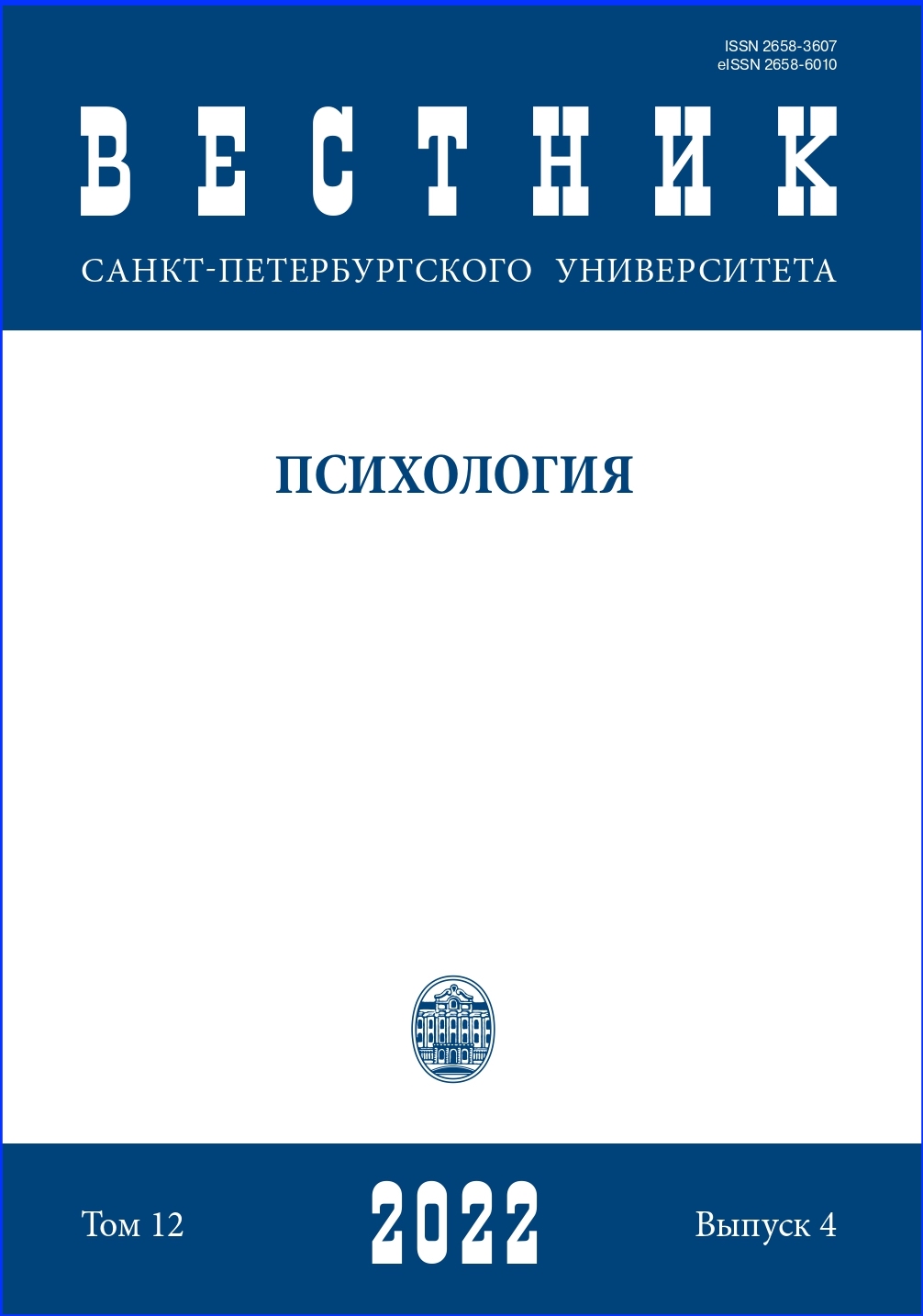Personal strengths (VIA model) among teachers of different generations
DOI:
https://doi.org/10.21638/spbu16.2022.408Abstract
This article describes the relationship between the expression of 24 personality strengths (in the VIA model) and age-related affiliation in teachers. The actuality and novelty of this study is the use of innovative methodological apparatus in the paradigm of generational research. The aim of the article is to study the correlation between the teachers’ age group and the expression of personality strengths in the VIA (Values in Action) model, one of the key models in the framework of positive psychology research area. The study was participated by educators from different regions, the age of the respondents was 18–75 years, the study group of respondents totaled N = 7938. The research shows the dynamics of changes in personality strengths depending on the generation of teachers. The personality strengths that are best described by generational changes are also presented, such as: love, spirituality, love of learning, gratitude, sense of humor, prosocial activity. The difference in the expression of personality strengths depending on the age of teachers was revealed. Using statistical analysis, it was found that teachers born between 1970 and 1979 have a significant “statistical slump” in the scales of curiosity, breadth of vision, courage. In some cases, “statistical drawdown” of “Spirituality” scale value is observed for the generation 1992–2002 in comparison with other generations. Also, the codrop of the 1992–2002 generation and the 1980–1991 generation was discovered to be: “Love for Learning”, “Kindness”, “Humility”, “Forgiveness”, “Gratitude” and “Prosocial Activity”. The presented model is an important step in the study of the interrelationships of 24 personality strengths in the context of the professional characteristics of the individual. With the help of the results of this study, it is possible to evaluate approaches to stimulating the personal potential of teachers of different ages. In the future, it is possible to study generational differences using the VIA model in other professional areas as well.
Keywords:
personality strengths, positive psychology, generation of teachers, VIA
Downloads
References
References
Downloads
Published
How to Cite
Issue
Section
License
Articles of "Vestnik of Saint Petersburg University. Psychology" are open access distributed under the terms of the License Agreement with Saint Petersburg State University, which permits to the authors unrestricted distribution and self-archiving free of charge.




